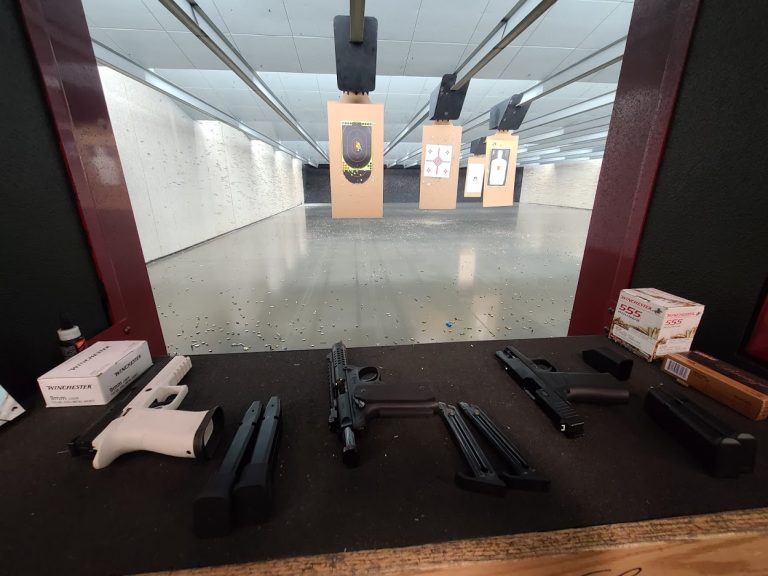The Supreme Court taking up its first-ever gun carry case poses a clear danger to the gun-control movement, which could see some of its preferred policies ruled unconstitutional. But the political threat to Republicans of the Court upholding New York’s restrictive concealed-carry permit regime is also worth considering.
Someone who has considered it is gun scholar Robert Leider. When I reached out to him for my piece on what experts think the Court will do in the case, he brought up the possible fallout of the law being upheld.
“If the law is upheld, I think the fury from the gun-rights community will be difficult to contain,” Leider, an assistant professor at George Mason University who studies gun law and politics, told The Reload. “In almost fifteen years since Heller was decided, gun-rights groups have won few court challenges of any significance.”
He said gun proponents already don’t trust the courts to protect their rights. If the Court doesn’t deliver the outcome they’re looking for, it could push them further into political activism. And that may lead the movement to re-examine its ties to the Republican Party.
“Gun-rights advocates just got through the Trump Administration with virtually nothing politically to show for it other than the appointment of conservative judges,” Leider said. “In four years, the biggest gun policy change the Trump Administration made on guns was banning bump stocks and confiscating those already in existence. If it turns out that the judges appointed by Republicans do not support gun rights, it may demoralize many single-issue voters who are now tethered to the Republican Party.”
Leider makes a legitimate point: Republicans have delivered very little for gun-rights activists outside of judicial appointments over the past 15 years. If those judicial appointments end up disappointing too, why should they remain so tightly connected to the GOP?
Despite his pro-gun campaign rhetoric, Donald Trump did not even bother making a single 2020 campaign promise to enact any sort of pro-gun legislation. Republicans effectively accomplished nothing on gun rights at the federal level during Trump’s first term, even though they had unified control of Congress for two years. Sure, legislative wins either way on guns are extremely difficult in our age of polarization and consistently slim majorities, but that never stopped Trump from promising all sorts of legislative long shots that never materialized. On guns, he didn’t even bother.
Further, Trump’s two major executive actions were redefining bump stocks as machine guns in order to ban and confiscate them and declaring gun stores “essential businesses” during the pandemic. Sure, the essential designation was important, but the unilateral bump stock ban is exactly the kind of thing every gun-rights proponent has warned about for years.
But every gun-rights group stuck with Trump anyway. They even praised him as a gun-rights champion. The NRA spent tens of millions on his failed re-election campaign.
That certainly seems like a good reason to re-evaluate gun-rights advocates’ relationship with the GOP if the judges Trump nominated turn out to be a bust. There’s only one problem: Democrats.
To put it mildly, there just isn’t much of a viable alternative for gun-rights proponents. The reason Trump could do little to advance gun rights, or even actively harm the cause, and still win over most gun activists is that he was running against Joe Biden. Trump may not have offered gun owners many promises, but he offered the one that really mattered: He wouldn’t pass new gun-control bills like Joe Biden.
The reality is Democrats have become more hostile to gun owners over the past decade. Two of the candidates in the party’s presidential primary based their entire campaigns around not just banning the most popular rifle in America but also confiscating it. And the current vice president agreed with them.
President Biden is now following in Trump’s footsteps and using executive actions to try to ban certain kinds of guns. The difference is, Biden is going after far more of them.
So, unless and until that trend in the Democratic Party reverses itself, Republicans won’t need to do much to keep gun-rights activists on their side. Pro-gun voters have no other real option. Even if they do nothing legislatively and their judges don’t deliver the rulings gun-rights advocates want, Republicans are at least unlikely to actively pursue aggressive gun-control measures.
The only thing I could see changing this dynamic is the rise of those 8.4 million new gun owners from 2020. What does that group look like? We know many of them are women or minorities. How do they vote? Do they vote at all? Will that change now that they own a gun?
Gun owners tend to be less likely to approve of gun-control measures. We’ve seen three different polls from major pollsters in the last few weeks that indicate support for gun control is already lower than before 2020. Is that because of these new gun owners? Are we starting to see them change their minds? It’s still very early, but I think it’s a strong possibility.
I think it’s generally unlikely most of these new owners will shift from party-line Democrats to party-line Republicans. What’s more likely to me, and more interesting, is they may shift their opinions on just firearms. So, you’ll see more pro-gun Republicans, independents, and Democrats.
Like people, political parties are often slow to change their minds on big issues. Usually, it takes losing elections to move a party off a certain position. It may take years to see more pro-gun or, at least, moderate Democrats come back into the party. But, if enough new gun owners vote against them or merely stop showing up to vote for them over this issue, things could eventually change, making a pivot away from Republicans a more realistic option.







2 Responses
There’s a massive difference between the GOP’s performance at the state and federal level.
Federally, they were a huge disappointment from 2016 – 2020 where nothing happened. They had an opportunity to delist suppressors from the NFA during the GOP-controlled ’17-18 years or clean house at the ATF throughout Trump’s admin. Neither happened.
Locally, though, there are huge gains and a lot of momentum. From 2016 – Present, ID, MS, MO, WV, ND, NH, SD, KY, OK, MT, UT, IA, and TN all became constitutional carry states. Plus you have strong anti-federal gun control legislation moving quickly with more and more states jumping on board.
The GOP is still the vehicle for progressing gun rights and, thankfully, gun advocates recognize that states, not the dysfunctional federal government, is where the real change happens.
I think you make a great point. The GOP has delivered a great deal for gun-rights advocates at the state level. That’s important to remember as well.